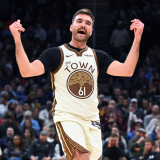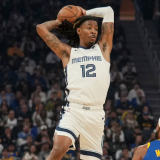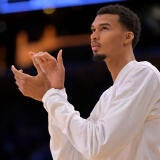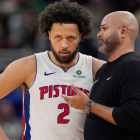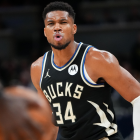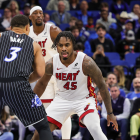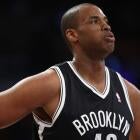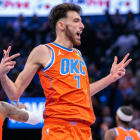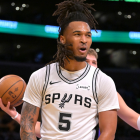
LeBron James is returning to a Lakers team that needs a different version of him than it has ever gotten
For once, James doesn't need to control everything for his team
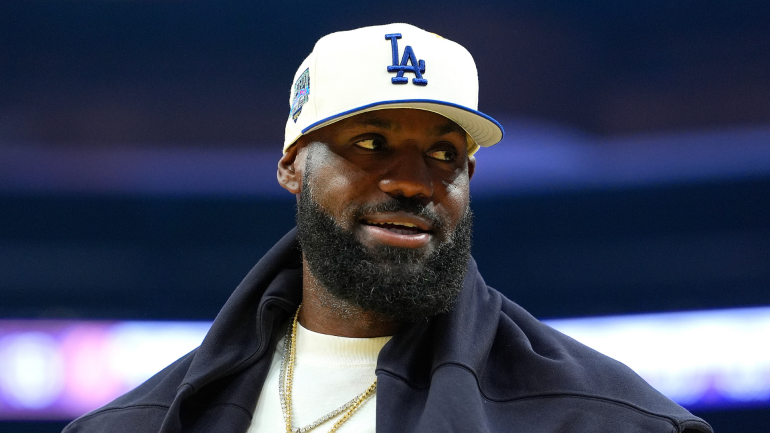
LeBron James, who will make his season debut Tuesday night vs. the Jazz, has spent the better part of two decades playing Atlas for franchises that would collapse without him to keep them aloft. He's also spent a good chunk of that time making it clear he was ready for that to change. Heck, that was what motivated him to ditch the Cleveland Cavaliers for the Miami Heat in the first place. As far back as 2017, he talked about handing the Cavaliers over to Kyrie Irving. That was eight All-NBA selections ago. The Lakers made a point of supporting him with ball-handling from the moment he arrived in Los Angeles and, when that wasn't enough, he pushed for the disastrous Russell Westbrook trade. The moves kept failing. James kept playing Superman.
In fairness, it's all he's ever really done in the NBA, save perhaps the brief moments of overlap with a healthy, peak Dwyane Wade in Miami and the best of Irving in Cleveland. James has talked a big game about sharing the workload, but when the games actually start, 20 years of habits kick in and he tends to control everything. And hey, he's LeBron James. Who's gonna stop him? Even after the Lakers acquired Luka Dončić last February, there was a push and pull between the two. Dončić led the team in shots and usage, but at lower clips than he'd posted since his rookie season. James deferred for most of the game, but cranked his usage and shot attempts back up above Luka's by a meaningful margin in fourth quarters in both the regular season and their first-round loss to Minnesota. Dončić joined James' team on the fly in the middle of a season. The torch never fully passed.
If there is a silver lining to James' absence thus far this season, it's that it has allowed the Lakers to find themselves without that question hanging over their heads. Dončić is settled and playing like an MVP, but just about everyone else is thriving as well. Austin Reaves is trending towards his first All-Star appearance. Rui Hachimura is having a career year and Deandre Ayton is having the bounce-back season the Lakers needed. For so long, James played on teams that needed him to do everything. Now, he's on a team that, at least thus far, really hasn't needed much of anything. He's getting what he's wanted for so long. He's also entering a situation he's never really played in before.
His injury may prove helpful in that respect. He'll be reintegrated somewhat slowly. He said himself after his first practice with the Lakers this season that his lungs feel like a newborn baby's and that he'll need to get his wind back with real minutes over time. A couple of games with somewhat limited minutes will go a long way towards figuring out where exactly he fits onto this new team. It certainly helps that the Lakers have reached the cupcake portion of their schedule. Between now and the stretch in mid-December in which their games are currently unscheduled due to the NBA Cup, they'll play the Jazz twice, the Clippers, the Mavericks, the Pelicans, the Suns, the Raptors and the Celtics. They'll be favored in all of those games as long as they're reasonably healthy. They can afford to get a bit experimental.
James will never be a role player. He's too good for that, team needs aside. But there's a balance here the Lakers should strive for. They don't need him to average 25 points per game. Something like 18-20 will more than suffice, with the hope that most of them come within the flow of the offense so as not to disturb the rhythm Dončić and Reaves especially have developed.
Getting there should be relatively simple. More and more of James' points have come in transition in recent years, not because he's getting out and running more often, but because he's been more aggressive about finding his own, easier shots there while setting up teammates in the half-court, where creating his own looks is more taxing.
He's become a far more eager catch-and-shoot gunner over the past few years as well. In Cleveland, he peaked at 1.6 catch-and-shoot 3s per game. With the Lakers, he's gotten as high as 3.5, a figure the current team would love for him to match or exceed, as they're taking the fewest catch-and-shoot 3s in the NBA by a wide margin so far this season. James, to his credit, recognized this as a key area coming into the season.
"I spent a lot of time on my catch-and-shoot 3-pointers," James said at media day in October. " ... Understanding how can I make the most of when I don't have the ball, either moving into space. Obviously, Luka and AR [Austin Reaves] going to do a lot of time handling the ball. …We have a lot of guys that can handle the ball, so how can I still be effective on a team where I don't have to handle the ball as much?"
That quote notably came before the extent of his injury was known. Dončić didn't have to assert his place as team alpha on the court. James was seemingly prepared to willingly cede it and his return to action will be our first glimpse into what his newfound role as a supporting player really means for him. It's probably going to be bumpy. There will be hiccups as the Lakers figure out how to reintegrate one of the most ball-dominant players of all time. But he's also among history's most versatile stars. By skill set, he's equipped to do whatever the Lakers need. Mindset and circumstance were always going to be the barometers here. His return will be our first glimpse into how he's going to handle this. It's something he's said he's wanted for quite some time and now the Lakers need him to embrace it.


